December 2, 2007
The Willis Farm
Poets of the EOTNP group bring work to the Thursday workshops for a variety of reasons and
at a variety of finished stages, some done with care, some done hurriedly—as is quite evident sometimes and as some poets indicate.
For these and other reasons, I think it is difficult to get a true assessment of who some poets
are, with respect to their work I mean, the genres she or he prefers for example. A person might call herself a “straight” poet but that does not say what the poet’s preferred genre of poetry is as, for example, elegy, ode, sonnet, couplet, free verse, the narrative poem, etc.
Moreover I can read an Allen Ginsberg poem or a Denise Levertov poem or even one by Sylia
Plath and say this is who this person is, this is what this person is about, this poem reflects that poet’s poetics of life. I don’t think too many of us could say that about too many others in our Thursday night group, or maybe we could?!?!
So I, and others I have spoken with, have asked the question periodically: what is this poet up
to? What is she trying to accomplish?
The Poetics Seminar, if I might call it that, is a Show and Tell of sorts, suggested as a way for
each poet to tell us who she or he is. And this can be done, this time anyway, by each poet bringing a poem to read which the poet says: I believe this poem reflects who I am as a poet. This is my quintessence.
And since none of us has arisen sua sponte, we all have a family tree, a poetical family tree. I
think it behooves each poet to know who the members of that tree are, to be able to say so-and-so is my grandfather, these are my sisters and brothers, these my children, if anyone can go that far—poetically speaking.
So the second part of our little seminar will involve each poet reading a relatively short piece
of work of his parent or a member of her or his genealogical tree that reflects that V’ville poet’s DNA. A poet might say: I would like to read this poem of my grandfather. It might be Whitman, it might be Wallace Stevens, it might be Marianne Moore as one’s great aunt, whoever. Before reading the poem, the poet will be asked to say a word of two of why she or he believes the “guest” poet reflects who they are.
After this reading, the group assembled is encouraged to ask the poet a few questions about
her or his interest in poetry and goals, and aims to which a poet might respond: I want to win a Pulitzer Prize! I want to get published in Poetry Don’t Pump Gas II. I want to get out of here!
I am imagining the Q and A period to be supportive of the poet, not an inquisition, a forum
to help each poet open up more like a spring flower. At this time as well the gathered poets might point to a line of a poem or to an entire poem of the poet (on stage) which they found interesting at one time, or that influenced him or her in some way.
Hopefully we can walk away from the Willis farm knowing each other’s work better, each
other’s person better, and be prepared for and interested in helping each poet grow, mature, develop better as a poet the next time we see her or him at our Thursday night sessions.
Dennis Sullivan
Here we are...
...a group of Baby Boomers of sundry religious,
political and cultural orientations, who have been
meeting at the Voorheesville Public Library since 1991
to read and discuss each other's poems.
We include old fathers and young grandmothers,
artists and musicians, and run-of-the-mill eccentrics.
Writers are welcome to stop in and stay if they like us.
political and cultural orientations, who have been
meeting at the Voorheesville Public Library since 1991
to read and discuss each other's poems.
We include old fathers and young grandmothers,
artists and musicians, and run-of-the-mill eccentrics.
Writers are welcome to stop in and stay if they like us.
Some of Us

Dennis Sullivan, Beverly Osborne, Tom Corrado, Edie Abrams, Art Willis, Alan Casline (all seated); Paul Amidon, Mike Burke, Tim Verhaegen, Mark O'Brien, Barbara Vink, Philomena Moriarty
Tuesday, November 6, 2007
Subscribe to:
Post Comments (Atom)



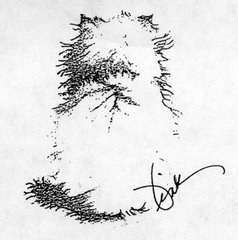
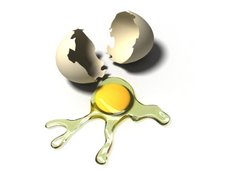

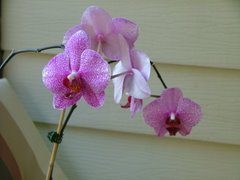









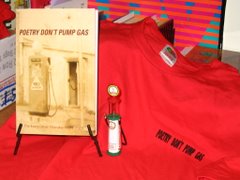
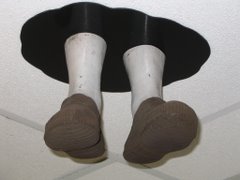


























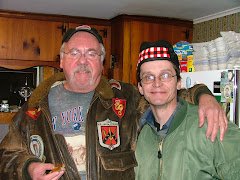
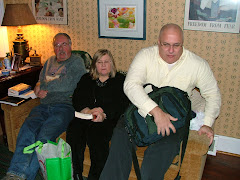
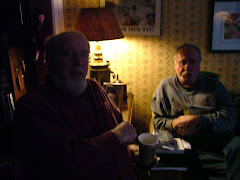
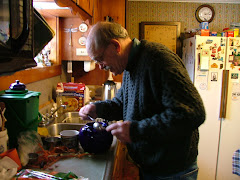
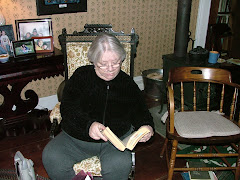
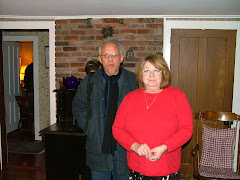
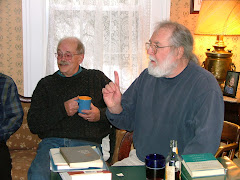
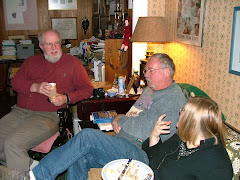
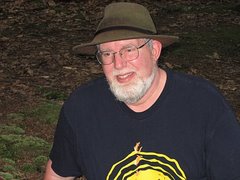
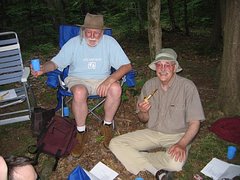
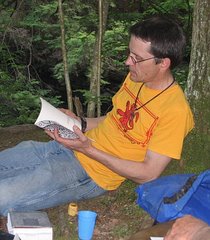
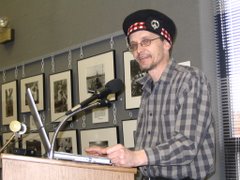
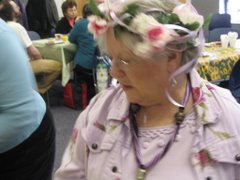
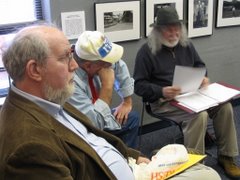
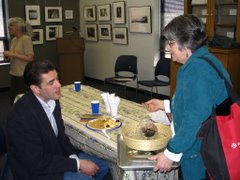
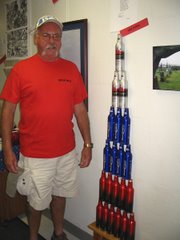

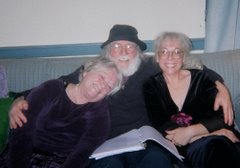
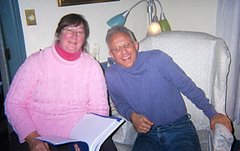
No comments:
Post a Comment